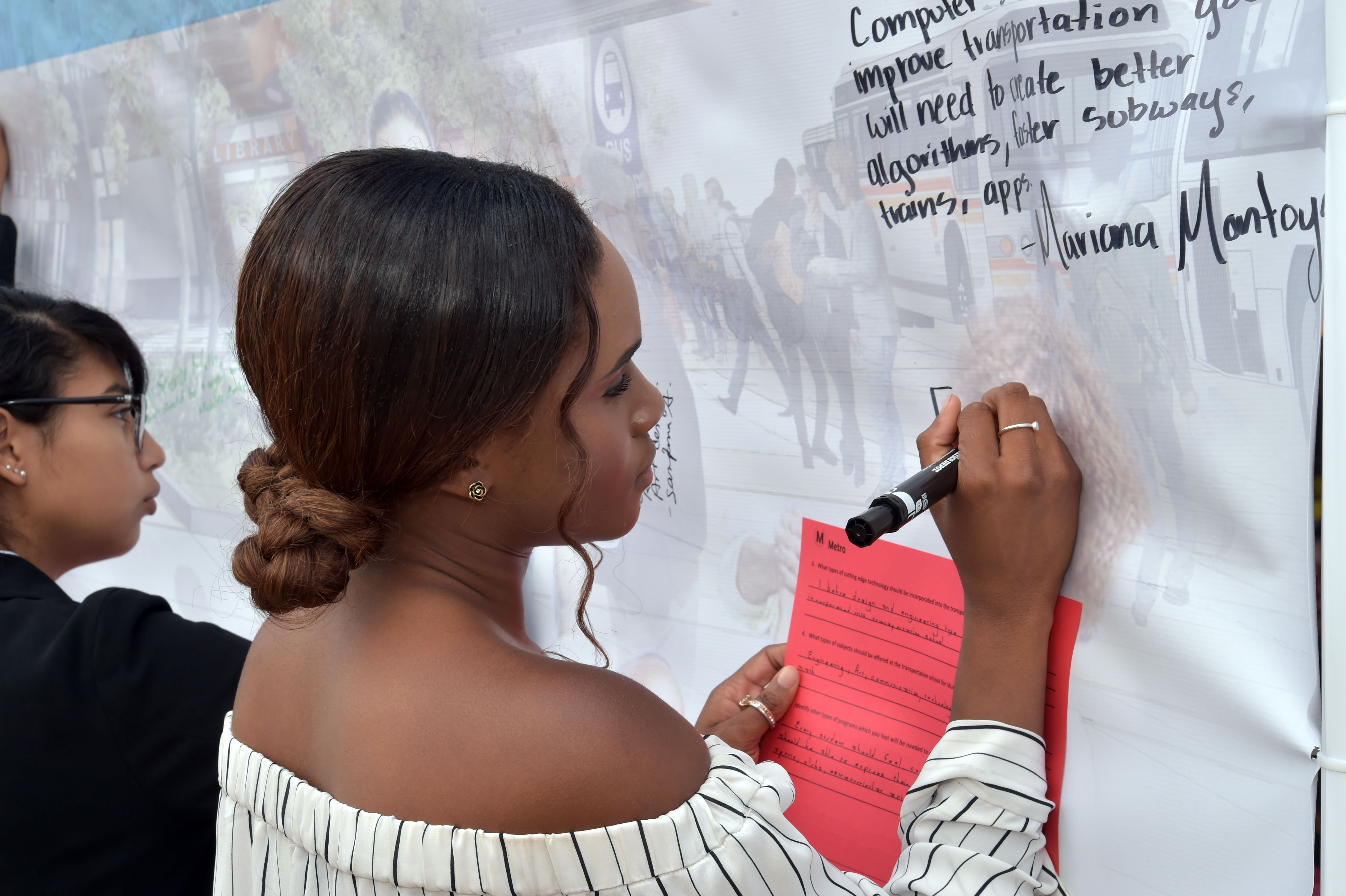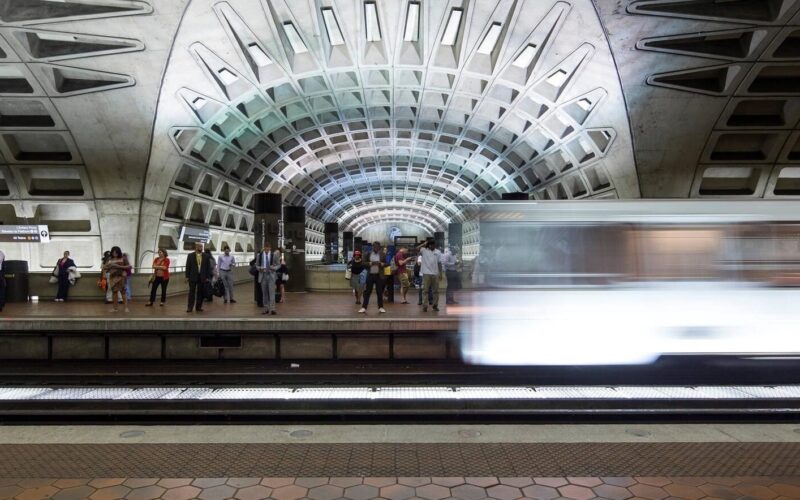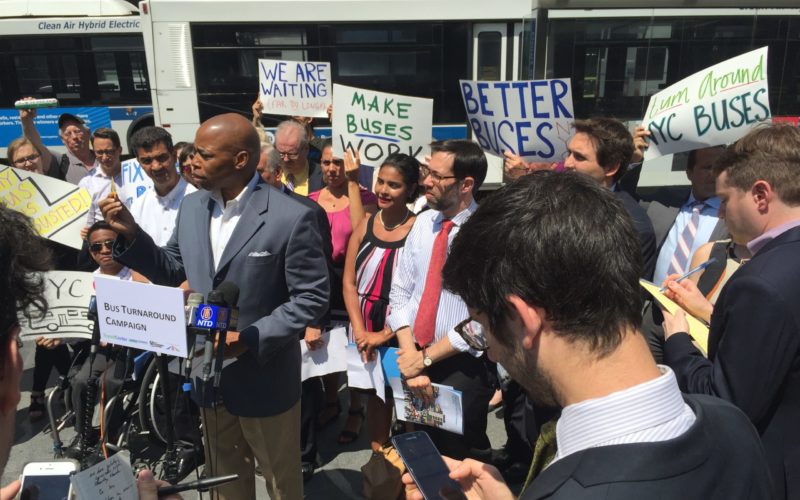
This post continues our series on diversity, representation, and equitable opportunity in the transit workforce. Previously, we’ve written about board leadership and agency CEO selection. This month, Julia Ehrman and Philip Miatkowski document workforce development initiatives that extend transit job opportunities to diverse candidates.
We always talk about people getting to work on transit. But what about getting people to work on transit?
The nationwide shortage of bus drivers is becoming better known, but the U.S. transit industry in fact has problems filling positions throughout their ranks. Sometimes vacancies are due to system expansion and a growing workload. Sometimes they result from a lack of qualified or interested applicants. In tackling these pipeline problems, some transit systems are developing inclusive and non-discriminatory hiring and training practices that are not only the right thing to do, but also give them a leg up in attracting people to their workplaces.
This June, LA Metro announced Transportation School, a charter boarding school the agency is building in partnership with Los Angeles County to train youth for transportation sector jobs. It’s a part of a larger workforce development initiative that Metro has launched to prepare for the industry growth they anticipate with Measure M funding’s expansion of the transit system and an imminent retirement cliff among today’s workforce. The proposed school will teach students grades 6-12 transferrable industry skills focused on science, technology, engineering, arts, and math. Both vocational and college-preparatory curricula will be offered for free. It will work to enroll young women, people of color, and homeless or foster children, and create a direct pipeline to jobs at the agency. The school is expected to open its doors as soon as fall 2020.
“Tomorrow’s economy depends on today’s opportunities,” said L.A. Mayor Eric Garcetti in announcing the school’s launch. “This new school gives young Angelenos a pathway to successful, long-lasting careers in the transportation industry — which, thanks to Measure M, will create hundreds of thousands of jobs in our region for years to come.”
In Minneapolis, Metro Transit offers a rigorous apprenticeship program called Alternative Pathways, available to people of color who are recent high school graduates earning less than $20,000 a year. Anticipating a need for more rail and bus mechanics, the agency created the program to improve representation in these roles from bus riding communities. Alternative Pathways worked with non-profits to find qualified students who were then tested extensively, assigned full-time course-work, assigned a mentor, paid, and promised a job upon graduation. Participants work full time through the program. MetroTransit’s agency-wide Everyday Equity initiative has codified diversity and inclusivity as workplace values. Leaders understand that these qualities are essential for employees and for transit service alike. For example, bus and rail operators who understand the communities they serve are often better equipped to respond to passengers, helping the agency’s credibility and public presence. Metro Transit also offers free language classes for all employees.
Many agencies haven’t revised Human Resources practices in a decade or more, and small changes can make a big difference. For instance, LA Metro’s Women & Girls Governing Council, a female employee-led group, successfully advocated for lowering or eliminating unnecessarily high weight and height minimums from certain job descriptions. The outdated standards immediately disqualified many otherwise qualified female applicants and the change resulted in a spike in female applicants. Unnecessary drivers’ license requirements create a discriminatory barrier to jobs that was easily be eliminated. Agency leaders should look for these tacit barriers in standard practices that privilege certain applicants while excluding others.
 On the Brink: Will WMATA’s Progress Be Erased by 2024?
On the Brink: Will WMATA’s Progress Be Erased by 2024?
The experience of being a WMATA rider has substantially improved over the last 18 months, thanks to changes the agency has made like adding off-peak service and simplifying fares. Things are about to get even better with the launch of all-door boarding later this fall, overnight bus service on some lines starting in December, and an ambitious plan to redesign the Metrobus network. But all of this could go away by July 1, 2024.
Read More A Bus Agenda for New York City Mayor Eric Adams
A Bus Agenda for New York City Mayor Eric Adams
To create the “state-of-the-art bus transit system” of his campaign platform, Mayor Adams will have to both expand the quantity and improve the quality of bus lanes. We recommend these strategies to get it done.
Read More